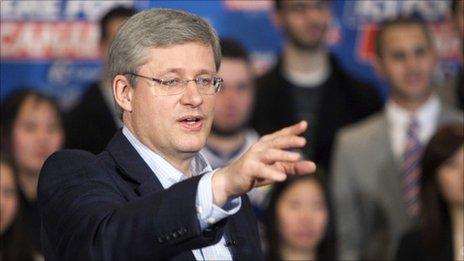Stephen Harper's Conservatives win Canadian election
- Published
Prime Minister Stephen Harper: "Canadians chose hope"
Prime Minister Stephen Harper's Conservative Party has won a majority of seats in a historic election that saw the left-leaning New Democratic Party become the official opposition.
The Conservatives won 167 of the 308 electoral districts, earning 40% of the vote, Elections Canada reported.
The New Democratic Party (NDP) claimed 102 seats, while the Liberals took 34.
Mr Harper, who took office in 2006, has previously won two elections but never before held a majority government.
Canadians voted on Monday in the country's fourth general election in seven years.
Mr Harper went into the vote having headed two successive minority Conservative governments since 2006. His party held 143 seats in the House of Commons prior to the dissolution of the last government.
Analysts say the prime minister has slowly nudged the country further to the right during his five-year tenure.
He has lowered sales and corporate taxes, avoided signing climate change legislation and become a stark advocate of Arctic sovereignty.
He has also increased military spending and extended Canada's military mission in Afghanistan.
"We are grateful, deeply honoured, in fact humbled by the decisive endorsement of so many Canadians," Mr Harper told supporters on Monday in the city of Calgary in the country's Alberta province.
Mr Harper said Canadians "can now turn the page from uncertainties" with a majority government.
New Democratic gains
The election marks the first time in Canadian history the Liberal Party did not finish either first or second.
They have historically been the main party in opposition when the Conservatives have held power, but the NDP has now taken over that role.
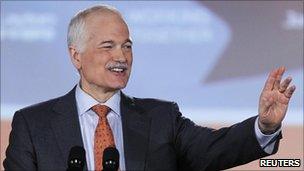
NDP leader Jack Layton is projected to walk away with 102 of the votes
"It's tough to lose like this," Liberal Party leader Michael Ignatieff said.
"Defeat is a teacher and now we have to learn the lesson of defeat and look at ourselves in the mirror," Mr Ignatieff said.
NDP leader Jack Layton jubilantly greeted his supporters in Toronto on Monday evening.
"Spring is here, my friends, and a new chapter begins," Mr Layton said.
The NDP went into the election with 37 seats, compared with 77 for the Liberals and 143 for the Conservatives.
They have emerged with 102, as the Liberals and Bloc Quebecois slumped badly, analysts say.
The separatist Bloc Quebecois, which seeks independence for the predominantly French-speaking Canadian province of Quebec, suffered heavy losses, retaining only four seats out of the 47 seats they previously held.
Mr Harper's government was forced into an election after a no-confidence vote in parliament.
It was found to be in contempt of parliament because of its failure to disclose the full costs of anti-crime programmes, corporate tax cuts and plans to purchase stealth fighter jets from the US.
Opinion polls in the run-up to the election had suggested the left-leaning NDP was experiencing an unexpected surge in popularity and threatened to quash Mr Harper's hopes of winning a majority government.
"I just want to make sure our country keeps going, creating jobs, and that we do not take a risk of a minority parliament that drives us off the cliff economically," Mr Harper said on Monday.
Mr Harper, a 52-year-old career politician, had warned that a win by the NDP could lead to out-of-control spending and higher taxes.
NDP leader Jack Layton, who favours some high taxes and more social spending, has been a critic of Alberta's oil sands sector, the world's second largest oil reserves.
- Published26 August 2016
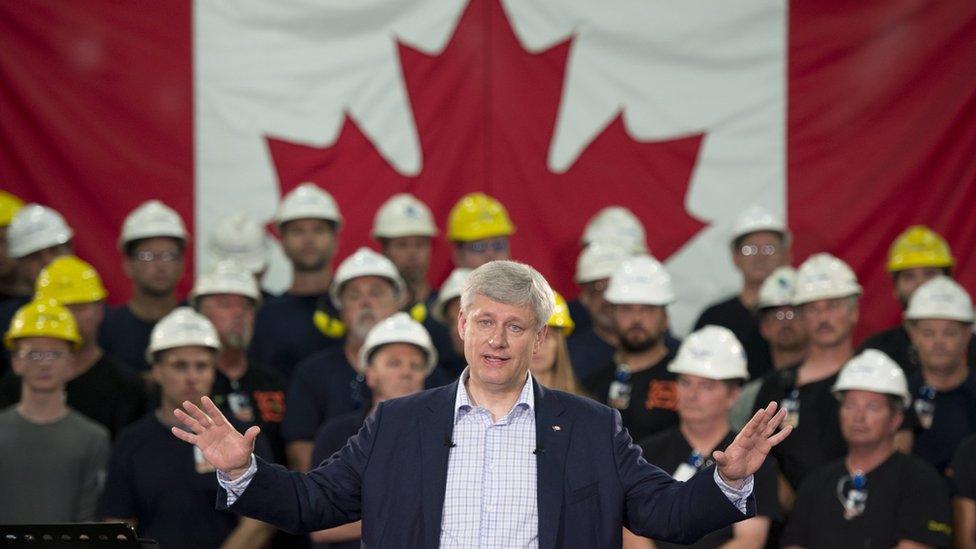
- Published3 May 2011
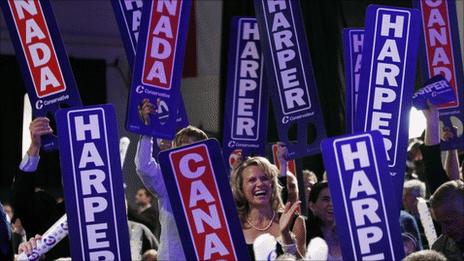
- Published30 April 2011
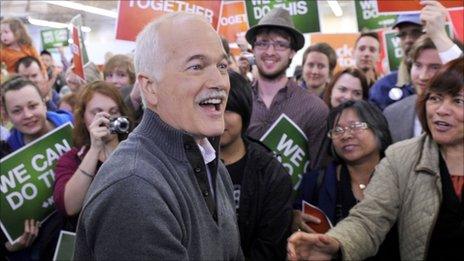
- Published30 April 2011
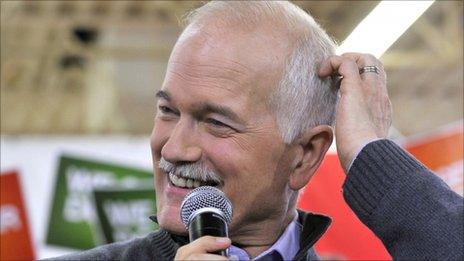
- Published21 April 2011
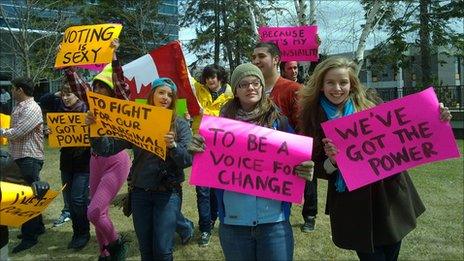
- Published29 April 2011
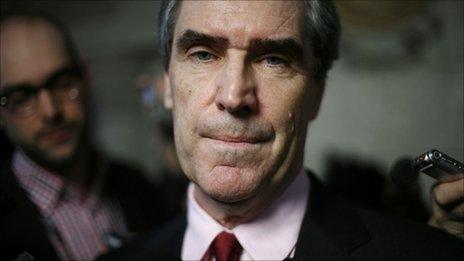
- Published29 April 2011
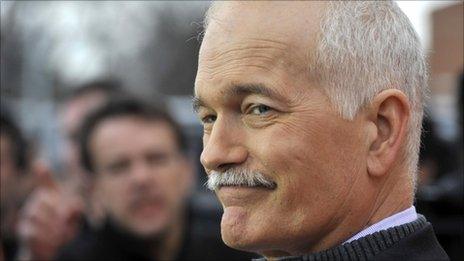
- Published13 April 2011
- Published28 April 2011
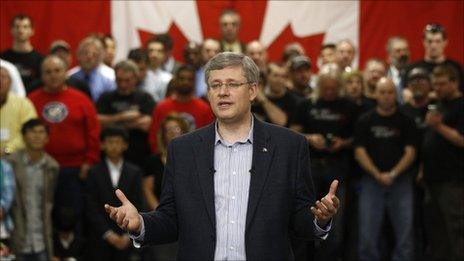
- Published22 April 2011
